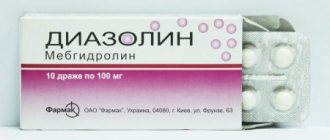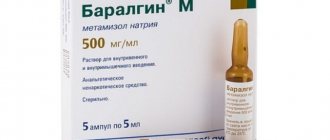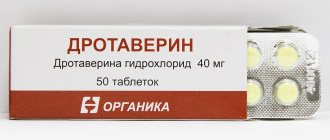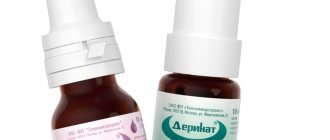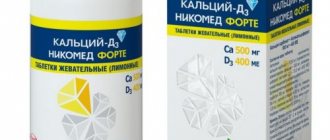The most important profession for a woman is to be a mother. You need to prepare for this extremely seriously, because during the period of bearing an unborn baby, a woman’s body undergoes a lot of changes in all systems. He becomes extremely vulnerable to any infections.
The most common problem that any woman in this position faces is the appearance of diseases of the nasal cavity. A runny nose is a problem not only for the expectant mother. It can also be extremely dangerous for the unborn baby, since the access of oxygen to the mother’s body is sharply limited . This can provoke oxygen starvation of the fetus. But a woman simply has to worry not only about her own normal well-being, but also about the health of her unborn child. Rhinitis is simply a scourge during pregnancy. This problem should never be ignored, especially when it comes to a pregnant woman. You shouldn’t endure unpleasant sensations either, as they cause discomfort for the expectant mother.
Any medications during pregnancy should be used with extreme caution so as not to harm the unborn child and the woman herself.
Effect of the drug
Avamis belongs to the group of hormone-containing drugs for the common cold, as it contains glucocorticoids. The main active ingredient of the nasal product is fluticasone furoate, which has a pronounced anti-inflammatory and anti-edematous effect. Excipients include dextrose, dispersible form of cellulose, benzalkonium chloride and purified water.
Avamis is available in drop form, as well as in the form of a spray, which is usually recommended for use during pregnancy, since the aerosol form has a larger coverage area with the same amount of medicinal solution consumed. This action has a local effect, due to which recovery occurs faster.
The intranasal product is presented as a white, transparent suspension and is available in bottles of three volumes:
- 30 doses of the drug;
- 60 doses;
- 120 doses.
Each bottle has a dispenser - a sprayer made of plastic, with valves for pressing, as well as a protective cap. The inner capsule, made of tinted orange glass, is placed in a protective plastic case, which has a window for monitoring the level of the drug.
Avamis during pregnancy: reviews
On the two largest Russian review sites, the rating of this drug is 4.3 stars out of 5 and 86% out of 100, respectively.
The majority of users noted the following advantages:
- Efficiency. A daily single use of the medication is often enough to ease breathing in case of allergic rhinitis. Avamis has helped many people overcome dependence on decongestants and the vasomotor rhinitis induced by them.
- Ease of use by adults. Thanks to the thoughtful shape of the plastic case, the bottle fits comfortably in your hand and does not slip out. The dispenser button is pressed moderately tightly, the product is sprayed into a cloud of tiny particles. A window located at the bottom of the bottle allows you to estimate the amount of product remaining.
- No discomfort during use.
- Economical consumption, it is impossible to overdose if you follow the instructions.
- Good tolerance. The medication is usually easily tolerated.
- No negative effects on the fetus when used during gestation.
The negative points included:
- Price. Approximate price for the largest and most profitable cylinder for 120 sprays: 625 rubles. A bottle of 30 doses costs about 2 times less.
- Personal concerns regarding the use of hormonal medications.
- Inconvenient to use for the youngest patients. The dispenser spout is a little wide for the narrow nostrils of babies.
- Less pronounced effectiveness when used to reduce adenoids.
- Local adverse reactions.
Indications and contraindications during pregnancy
Avamis during pregnancy is recommended to be used strictly as prescribed by a doctor. It is usually prescribed for therapeutic purposes for allergic rhinitis, when non-hormonal drugs do not give the desired result.
In addition, Avamis intranasal spray is used as part of complex treatment of other diseases of the nose and airways:
- Maxillary sinusitis. Due to the anti-edematous effect of the drug, swelling of the mucous membrane decreases, which leads to easier outflow of pus, improvement of the patient’s condition, as well as faster relief from the disease.
- Adenoids. Avamis during pregnancy reduces the symptoms of inflammation and also reduces the secretion of mucus by the ciliated epithelium of the nasal cavity. This reduces nasal congestion and makes breathing easier.
- Allergic rhinitis with seasonal exacerbations. Fluticasone furoate contained in the drug relieves irritation and itching of the mucous membrane. A decrease in the severity of symptoms occurs 6-8 hours after the initial irrigation, the effect of the medication lasts up to 24 hours. Read more about the treatment of hay fever →
Avamis has a number of contraindications during pregnancy, when the use of the suspension can harm the body of the expectant mother:
- Previously noted in the anamnesis, a hypersensitivity reaction to the active substance, as well as other glucocorticoids of synthetic origin.
- The product should not be used if there are nosebleeds, or if a wound surface is detected.
During pregnancy, the use of Avamis is advisable in situations where the expected therapeutic benefit for a woman outweighs the potential risk for the intrauterine development of the child.
When should you stop taking the drug?
Glucocorticosteroids, regardless of the form of administration, reduce the body's immunity. When immunity is reduced, as in expectant mothers, the use of the drug can cause more harm than good. There is no need to use the product during conditions that mobilize the immune system - inflammatory processes, in the postoperative period, during exacerbation of chronic pathologies, etc.
Features of application
Since Avamys belongs to the class of synthetic glucocorticoid drugs, that is, it is a hormonal substance, its use during pregnancy should be carried out strictly according to indications and under medical supervision with monitoring of the condition of the expectant mother.
Although Avamis is active only on the mucous membrane and does not penetrate into the body, its use should still not be combined with other hormonal-containing drugs for oral or injection use. In this case, an overdose may occur.
The drug is used to treat allergic manifestations, however, it should not be prescribed to people with individual intolerance to the medication or substances included in Avamis, as this can lead to an increase in the severity of the body's hypersensitivity reaction.
In persons suffering from hepatoencephalopathy and other liver pathologies, the spray should be used with caution and only when absolutely necessary. People with kidney failure should do the same.
Avamis is approved for use during pregnancy, however, only after consultation with a specialist, since uncontrolled independent use can harm not only the health of the expectant mother, but also the baby.
Avamis hormonal nasal spray: description of capabilities and recommendations for use
Among the many different remedies for the common cold, sprays and drops based on synthetic glucocorticoid hormones are practically indispensable in the treatment of allergic rhinitis of all types.
Before you continue reading: If you are looking for an effective method of getting rid of a runny nose, pharyngitis, tonsillitis, bronchitis or colds, then be sure to look at this section of the site after reading this article. This information has helped so many people, we hope it will help you too! So, now back to the article.
The most well-known drugs in this group include a Belgian remedy called Nasonex, a Polish spray called Flixonase, as well as the medicine that will be discussed in this article, the English hormonal nasal spray Avamis.
If the spray is used as intended, treatment with Avamis brings good results even in complex and advanced cases. With the effect of the drug, not only the runny nose and nasal swelling disappear, but also the general well-being, as well as the patient’s quality of life, significantly improves.
By wisely using Avamis nasal spray, a person simply forgets about his illness and leads a normal life, without fear of cold, pollen, dust and animal hair, as well as other numerous allergens that surround us everywhere and can cause extremely serious conditions.
The synthetic glucocorticoid hormone fluticasone furoate, which is part of Avamis, copes with its “responsibilities” without any problems, successfully counteracting allergic rhinitis and preventing the occurrence of such unpleasant complications as inflammatory processes of the paranasal sinuses - sinusitis (the most common and best known of sinusitis is sinusitis).
By the way, Avamis nasal spray not only prevents the occurrence of sinusitis, but is also successfully used in the treatment of a process that has already begun, making it easier for the ENT doctor and antimicrobial drugs to access the nasal sinuses by reducing swelling of the nasal mucosa. These and other possibilities of the drug will be discussed below.
You will also learn why the “terrible” hormonal drug Avamis will not cause serious side effects if used correctly and why using a “safe” nasal spray can be accompanied by very unpleasant consequences if you do not pay attention to the information in the instructions for the medicine and the doctor’s warnings.
We will explain in detail why Avamis is not prescribed to children (reviews stating the opposite should not be taken into account) under 2 years of age.
You'll learn when and why it's worth taking the risk when using medication to treat vasomotor rhinitis in pregnant women.
We will also tell you how Avamis differs from other hormone-based nasal sprays and whether this drug has worthy analogues. Let's start with the main thing: with information about Avamis in the instructions for the medicine.
Why is it always necessary to read the instructions for use?
This must be done because the official instructions are the only document that contains reliable verified information about the drug.
Therefore, the instructions for using Avamis should be thoroughly studied before purchasing, and even more so before using the spray, even if your doctor advised you to use the medicine.
After all, the doctor focuses only on test results, examination data and the information about your health that you tell him. However, often a person does not tell the doctor any details that seem insignificant to him or which he simply forgets.
But these details may be extremely important for the choice of both treatment method and drug.
For example, using Avamis simultaneously with Ritonavir can cause an overdose of glucocorticoids with all the ensuing consequences. Therefore, if you do not tell your doctor that you are taking Ritonavir capsules and do not read the contraindications and restrictions in the instructions for both drugs, then when using Avamis spray, side effects will turn a useful medicine into an aggressive and unsafe substance.
In addition, in the instructions you will always find recommendations on the optimal dosage of the drug and treatment regimens for various pathologies.
Each instruction for a drug, in principle, is written according to the same scheme: at the beginning of the document, the forms of release of the drug are indicated and its therapeutic (pharmacological) effect is described.
Basics of pharmacological activity and release form of the drug Avamis
The instructions for use explain the pronounced therapeutic effect of the drug Avamis in a simple, but unclear way: the active substance – fluticasone furoate – has a high degree of “affinity” (affinity) for glucocorticoid hormone receptors.
These mysterious terms mean the ability of the main substance to bind to the active sites (receptors) of special analyzers, the interaction of which with glucocorticoid hormones leads to blocking our body’s reaction to allergens. A high degree of affinity means a strong and long-lasting connection between the receptors and the drug.
Therefore, there is nothing mysterious in the powerful anti-inflammatory, anti-edematous and anti-allergic effect of Avamis: the receptors of the nasal mucosa no longer need to protect themselves from the environment, since it ceases to be hostile.
To ensure that the entire mucous membrane is treated with a medicinal substance and there is not a single “loophole” left for allergens, it is best to use spray irrigation. Only this technique allows the solution to get into the depths of the sinuses, sinuses and folds of the mucous membrane.
The spray is very convenient to use. The only limitation of this dosage form is that it is not suitable for treating infants and young children (up to 2–3 years of age). But since Avamys is not indicated for children at this age (we will talk about this in more detail below), there is no need to release it in drops.
Why do reviews often mention Avamis nasal drops? Because most reviews are written not by doctors, but (at best!) by people who have used the medicine. But they don’t always understand the difference between honey drops and spray.
However, there is such a difference, so do not look for Avamis drops in pharmacy reference books and catalogs and remember that the medicine has only one form of release - a nasal spray.
Why is there a “Pharmacokinetics” section in the instructions for use of drugs?
Following the information about the release form and the principles of therapeutic action, the instructions for any medicinal product contain a section called “Pharmacokinetics”.
This tricky name should not discourage you from carefully studying the section. After all, the term pharmacokinetics refers to the mechanisms of transformation of drugs in the human body, the routes of their elimination and the rate at which this elimination occurs.
In the instructions for some complex medications, the therapeutic effect of which is provided by a whole complex of active substances (for example, the natural drug Umkalor based on pelargonium root extract), it is not possible to trace their pharmacokinetics.
But the instructions will tell you in great detail about the pharmacokinetics of the drug Avamis. And we advise you to read this section no less carefully than the previous and subsequent ones.
After all, only after studying it, you will understand, for example, why people with chronic liver failure need to use the spray with caution: fluticasone furoate decomposes in the liver and is excreted through the intestines.
Therefore, even those minimal amounts of the hormone that enter the central circulatory system when irrigating the nasal cavities with Avamys can cause undesirable reactions in patients with liver disease.
Indications for use of Avamis nasal spray
Following the pharmacokinetics, the instructions indicate indications for the use of Avamis spray, which include:
- sinusitis or other sinusitis (as part of complex therapy)
- adenoids in children (as part of complex treatment)
It goes without saying that testimony alone is not enough. It is necessary to determine the single and daily dose of the drug, as well as the duration of treatment.
How to use Avamis spray?
In the instructions for Avamis, as in the instructions for any other medicinal substance, you will find a description of the approximate calculation of dosages depending on age and diagnosis.
However, it should be understood that it is extremely undesirable to independently select a treatment regimen according to general recommendations: it is better and more correct if a doctor does this.
You should carefully consider the description of the procedure for irrigating your nose with Avamis: the instructions recommend using the spray only after checking the working condition of the dispenser.
The thing is that a drug solution is not a solution in its pure form, but is a so-called suspension - a suspension of solid particles in a solvent (water).
These particles can clog the dispenser openings and prevent the spray from flowing into your nose. By the way, it is recommended to clean not only the bottle dispenser before irrigation: Avamis should be sprayed into the nose only after the nasal turbinates are free of mucus.
Side effects and contraindications of Avamis: look in the instructions, not in reviews
It is no secret that side effects and contraindications are studied most often and most carefully in the instructions for a medicine. There is nothing surprising. After all, when a person is sick, he wants to be cured, and not to create new problems for himself.
True, those who are particularly distrustful often trust reviews about the side effects of a medicine more than the information contained in the instructions. But this cannot be done: the information that the instructions contain about contraindications and possible side effects of the drug Avamis will not replace the reviews.
The only drawback of the official document is the abundance of medical vocabulary and the strictly official tone of presentation.
However, if you carefully consider the description of possible problems, you will easily understand why the hormonal drug Avamis (reviews on forums often confirm what has been said) can become harmful and even dangerous if you neglect the instructions in the instructions and warnings of specialists or use the spray for other purposes.
Try to understand the content of this section and draw appropriate conclusions. Then you simply won’t need any reviews about Avamis: follow the instructions in the instructions and use the spray if it is indicated for you and will not harm you.
When and to whom is Avamis spray contraindicated?
- Since Avamys is a hormonal drug, even despite the local effect of the drug (this means that it works almost exclusively in the nasal mucosa), it is not recommended to use it simultaneously with taking hormonal drugs orally or by injection: the combined effect can cause an overdose.
- Like absolutely any medicine, Avamis cannot be prescribed to people with individual intolerance to fluticasone furoate or any other component of the drug. Although it sounds quite strange, “allergy medications” can also cause allergies.
- Patients with severe liver damage should use the spray very carefully and only when absolutely necessary. We have already mentioned this above when talking about pharmacokinetics.
- Avamis is not prohibited during pregnancy, but its use for the treatment of pregnant women is limited to cases of urgent need. Ideally, instead of Avamis during pregnancy, it is better to use some harmless remedy for the common cold, but, unfortunately, they are not always effective.
- The drug cannot be prescribed to a child under 2 years of age
- The use of the spray is prohibited for patients with a tendency to nosebleeds, in the first weeks after sinus surgery and for existing wounds of the nasal mucosa.
What side effects can Avamis cause if prescribed or used incorrectly?
As already mentioned, Avamis spray does not combine well with ritonavir and ketoconazole and, when used together, can cause symptoms of an overdose of hormones of this type: increased heartbeat, weakness, drop in blood pressure.
In addition, the use of Avamis is occasionally accompanied by nosebleeds, which requires immediate discontinuation of the drug.
In case of individual intolerance, the spray causes allergic reactions from the skin (urticaria) and respiratory systems (choking attacks), as well as generalized reactions: Quincke's edema, anaphylactic shock.
Concluding your acquaintance with the contents of the instructions for use, we once again strongly recommend that you consult with your doctor, carefully study the description of its action when purchasing the drug Avamys and evaluate how indicated it is for you or your child. And only then pay attention to reviews – both enthusiastic and negative.
Avamis and children: dangerous or safe, beneficial or harmful?
Why can't the medicine be used to treat children under 2 years of age? There are several reasons for this. Here they are.
First, when spraying a small child's nose with a spray, the solution can enter the passage between the nasal cavity and the middle ear cavity (Eustachian tube) and cause inflammation of the middle ear (otitis) or inflammation of the Eustachian tube (eustachitis).
Secondly, the baby is not able to hold his breath when the drug is sprayed in the nose, so during the procedure the spray can enter the trachea and bronchi, as well as the esophagus.
Thirdly, although Avamis is a topical hormonal drug, it can nevertheless provoke certain hormonal imbalances in infants and young children.
The use of Avamis for the treatment of allergic rhinitis in children over 2 years of age, subject to the doctor’s recommendations and instructions in the instructions, does not cause unwanted side reactions and gives excellent results.
Sinusitis, adenoids and other serious problems: what can Avamis do?
When looking for additional information about how and why Avamis (spray) can and should be used, reviews on forums may misinform readers.
Remember once and for all: this medicine alone treats EXCLUSIVELY allergic rhinitis in all its diversity.
However, there are a number of diseases that often become complications of the same allergic rhinitis or develop on their own, and then an allergic component is added to them. In this case, the use of the medicine gives good results, but only as part of a complex treatment.
Thus, Avamis relieves swelling and other inflammatory phenomena in case of sinusitis, providing an opportunity for the outflow of pus from the maxillary sinuses and freeing up the nasal passages for therapeutic and diagnostic punctures (if necessary). However, Avamis is not able to cure sinusitis “alone”.
Avamis for adenoids is often used in pediatric otorhinolaryngology as an adjuvant when prescribing a conservative treatment regimen.
As with sinusitis, for adenoids Avamis only facilitates the solution of the problem, but will not be effective when used as the main medicinal substance.
For purulent bacterial rhinitis, the medicine can be prescribed in combination with antimicrobial drugs, but its use without antibiotics in this case is ineffective.
What can replace Avamis?
It happens that if there is no medicine in pharmacies, you have to look for an analogue of Avamis. This is quite easy to do. Above we have already named the sprays that are closest in composition and action - Flixonase and Nasonex. The composition of Flixonase differs slightly from the composition of Avamis, but Nasonex contains another hormone.
Which is better – Avamis or Nasonex? The medicine that the doctor prescribed for you is better: he knows better which drug - Nasonex or Avamis - suits you best. Remember: if you are allergic to Avamys, an analogue can and should be selected only after preliminary special tests!
How much does Avamys nasal spray cost?
The cost of Avamis in pharmacies varies slightly and ranges from 420 to 700 rubles, depending on the number of doses in the bottle (30, 60 or 120).
If you want to replace Avamys spray, the price of which is high for you, with a cheaper analogue, this is unlikely to be possible: all hormonal medications are not cheap.
You must also understand that the price does not make Avamys more useful than it actually is: the high cost of the drug is due to expensive raw materials and complex production technologies, and not at all to its magical properties.
Therefore, it is wrong to assume that the expensive hormonal Avamis is better than, for example, the cheap Naphthyzin: these are completely different drugs.
What should interest you first if you have not used Avamis before: instructions, price or reviews?
Of course not the price, although Avamis is quite expensive for many. Of course, it doesn’t hurt to read reviews about the medicine, and it’s simply necessary to study the instructions. However, any drug should be used only after consulting a doctor. And it is his opinion that can and should become the determining factor when choosing treatment methods and medications.
The article above and comments written by readers are for informational purposes only and do not encourage self-medication. Consult a specialist regarding your own symptoms and illnesses. When taking any medicine, you should always use the instructions that come with the medicine and your doctor's advice as a guide.
In order not to miss new publications on the site, it is possible to receive them by email. Subscribe.
Do you want to get rid of your nose, throat, lung and cold diseases? Then be sure to check it out here.
Instructions and dosage
The unusual design of the bottle with the medicine, at first glance, creates difficulties with the use of the spray, however, after the first use there is a feeling of convenience and simplicity when irrigating the nasal cavity.
Thanks to the built-in mechanism, there is no need to control the amount of injected solution, since a special valve releases only one strictly dosed portion of the medicine with one press. One dose of Avamys is equal to 27.5 mcg.
During initial use, you need to carry out a number of simple manipulations:
- Shake the container with Avamys drops vigorously.
- Remove the protective cap.
- Press the dosing device key six times. With the last press, a test stream of solution should be released, but if this does not happen, then the press must be repeated several times.
After these simple steps, the intranasal spray is ready for use. There is no need to repeat them before each irrigation, but only if the liquid outlet hole is clogged. Several presses will allow you to remove dirt under pressure, which must not be removed with any sharp object, such as a needle, as this can lead to breakage. The algorithm for using Avamis during pregnancy is simple:
- Shake the bottle of suspension for about 8-10 seconds to make the medicine less thick and easier to use.
- Remove the cap from the tip.
- Turn your head slightly to the side and place the nozzle of the bottle in the nostril, controlling the depth of insertion.
- Inhale sharply and press the dosing device button.
- Exhale through your mouth.
- Thoroughly clean the protective cap from dirt and also wipe the tip with a clean cloth.
- Repeat for the other nasal passage.
The individual dosage of Avamis during pregnancy should be calculated by a doctor. Since the drug is a corticosteroid, its uncontrolled use can be harmful to health. Following the instructions from the instructions for use, for therapeutic purposes it is recommended to make 2-3 injections into each nasal passage daily in the morning or evening, with an interval of 24 hours.
According to studies, a slight excess of the dose does not cause negative effects, however, during pregnancy and lactation you should not take risks, because the drug is not tested in these groups.
Directions for use and doses
Intranasally.
The therapeutic effect is achieved through regular use of the drug. It may take 1-2 days for symptoms to subside.
The recommended initial dose for children 2-11 years old is 1 spray into each nostril once a day. Increasing the dose to 2 injections is permissible in case of prolonged absence of the desired effect.
For adolescents over 12 years of age and adults, the initial dose is 2 sprays into each nostril once a day. As symptoms resolve, you can reduce the amount of the drug to 1 injection in each nostril for maintenance treatment.
Before using Avamis spray, shake the bottle well without removing the cap.
To inject Avamys, according to the instructions, you need:
- Hold the bottle vertically; Remove the cap; Clear your nose; Tilt your head; Insert the tip into the nostril and point it towards the outer wall; Inhale through your nose and simultaneously press the button with your finger; Exhale through your mouth; Repeat the procedure for the other nostril; Rub the tip with a napkin; Close the bottle with a cap.
Side effects
According to the established classification, all adverse reactions are classified according to frequency of occurrence as follows:
- very often - more than one case out of 10 applications;
- often - from 1/10 to 1/100;
- infrequently – from 1/100 to 1/1000;
- rarely - from 1/1000 to 1/10000;
- very rarely - exceptional isolated cases.
This systematization was developed based on clinical observations.
When using Avamis during pregnancy, the following side effects may develop:
- On the part of the respiratory system - nosebleeds very often occur, especially with long-term course of treatment, ulcers and damage to the integrity of the mucous membrane often develop.
- On the part of the immune system - in some cases, a hypersensitivity reaction to fluticasone, urticaria, Quincke's edema, skin rash and urticaria may occur. Anaphylactic shock very rarely develops.
General concept
Avamis nasal drops are available in the form of a spray. Contains a synthetic glucocorticosteroid that has an anti-inflammatory effect. This is a hormonal drug and is not fully absorbed. Excreted through the intestines.
Why is Avamis prescribed to pregnant women:
- allergic rhinitis;
- getting rid of swelling in the adenoids.
Contraindications during pregnancy include sensitivity to the constituent components and allergies. In case of the slightest complications, it is recommended to immediately consult your doctor.
- nosebleeds;
- damage to the nasal mucosa;
- rashes;
- Quincke's edema;
- hives;
- anaphylaxis.
Dosage: children over 12 years of age and adults – 2 injections every day. As soon as the result is noticeable, the dose is halved. It is forbidden to increase the indicated dose.
The doctor determines the duration of therapy. To avoid negative consequences, strict adherence to the dosage is necessary. After a week of using the drug, it is better to stop using the drug. You can occasionally use Avamys in the 1st - 2nd trimester of pregnancy, but only under the supervision of a gynecologist.
Patients worry that the nasal spray is hormonal. Such drugs have side effects, but the consequences arise due to improper use. Even a non-hormonal medication can have a negative impact on health if the correct dosage is not observed. Basically, medications are prescribed individually to each patient.
Precautionary measures
Before you start using the medicine, you must ensure that the bottle is intact and that there are no visible damages on its surface. Be sure to pay attention to the expiration date of the drug, and if it has expired, then stop using this solution.
If, due to careless handling of the bottle, liquid accidentally gets on the mucous membrane of the eyes and cornea, you should immediately rinse the affected area with clean running water.
When small children live in an apartment, it is necessary to exclude the possibility of the child having access to the bottle of medicine.
During the initial passage, the active substance fluticasone furoate undergoes metabolic changes in the liver under the influence of a special enzyme CYP3A4, therefore, in people suffering from hepatopathology, pharmacokinetic changes in the drug may occur in an atypical form.
When using Avamis in pregnant women with concomitant renal and hepatic disorders, no dose adjustment of the administered solution is required.
Avamys, like other hormonal medications, does not affect driving.
Indications for use of the drug
Avamis is intended for use against seasonal or year-round allergic rhinitis in both children over 12 years of age and adults . Treatment of viral or bacterial runny noses during influenza is not only ineffective, but is even prohibited, as it can cause a reverse allergic reaction associated with intolerance to the drug.
In addition, it must be borne in mind that Avamis, like other allergy remedies, does not treat the disease itself, but only quickly and effectively relieves symptoms.
The use of any medications during pregnancy should only be done after consultation with a specialist.
Analogs
Avamis is an expensive drug, so treatment with this intranasal spray is not always available to patients. In such situations, you should discuss with your doctor the possibility of selecting an analogue. Unfortunately, today the pharmaceutical industry does not produce exact copies of the drug containing fluticasone furoate, however, there are medications that have a similar effect, which also belong to the group of synthetic corticosteroid hormones.
These nasal sprays include:
- Nasonex (mometasone furoate);
- Flixonase, Nazarel, Sinofluril (fluticasone propionate);
- Nasobek (beclomethasone dipropionate);
- Beconase (beclomethasone).
You cannot replace Avamys with another medicine yourself, especially during pregnancy, since there are no identical structural analogues.
Avamis spray currently has no competitive drugs. Although the solution is expensive, there is no need to skimp on your health, especially during pregnancy. Listen to the recommendations of doctors, and not to the advice of friends or relatives.
Author: Violeta Kudryavtseva, doctor, especially for Moylor.ru
Indications for use for expectant mothers
Nasonex is prescribed mainly for nasal congestion of an allergic nature . But the drug can also be used in the following cases:
- exacerbation of sinusitis (its use is justified along with antibiotics);
- nasal polyposis;
- rhinitis in pregnant women.
Many expectant mothers are forced to resort to sprays to restore normal nasal breathing.
Full nasal breathing is very important for an expectant mother. The inability to breathe through the nose reduces the amount of oxygen entering the blood, leads to problems with sleep, contributes to the accumulation of fatigue and the development of stress. All this negatively affects the condition of both the woman and the fetus. This is why doctors resort to medications such as Nasonex, because they can improve the quality of pregnancy.
During pregnancy, I did not have to resort to the help of Nasonex, just like other drugs that facilitate nasal breathing. But I know what discomfort a stuffy nose causes, so I am sure that good health and good sleep are very important for an expectant mother. I don’t see anything wrong with a woman using medications that allow her to breathe freely. Especially if the doctor prescribed this medicine.
What is Avamis, a rhinitis remedy?
Avamis is a nasal spray for runny nose. Its main component is the synthetic hormonal substance fluticasone furoate .
This hormone penetrates very quickly through the mucous membrane of the nasal cavity and acts on certain receptors located in the nasopharynx.
This interaction helps reduce the inflammatory process.
Symptoms of rhinitis completely disappear , including those of an allergic nature: nasal congestion, mucous discharge, swelling, redness and itching in the eye area.
The hormone remains bound in interaction with receptors for twenty-four hours, so a single use of Avamis during the day is often sufficient.
Another property of the drug is that it is almost not absorbed in the body , that is, it is not absorbed or absorbed by the vessels and organs of the human body. The hormonal substance almost completely binds to blood cells (proteins) and is eliminated from the body within a few hours, leaving no traces in the blood.
Exercises for pregnant women: 2nd trimester
An active, mobile lifestyle during pregnancy is the key to excellent health. Physical exercise makes it possible to stay fit, invigorates and gives strength, and improves psychological well-being. Light exercise is necessary throughout pregnancy , but the most comfortable period for doing it is the second trimester.
Why do you need exercise in the 2nd trimester?
The period of time from the fourth to the sixth month is the safest and most favorable for sports activities. The body has already become accustomed to the new state, the constant nausea has disappeared, more strength has appeared, and hormonal levels have stabilized.
Now is the time to start preparing for childbirth through exercise. Light daily exercise will help avoid many problems :
Regular exercise during pregnancy allows you to quickly get back into shape after childbirth and lose extra pounds.
Exercises must be selected individually for each woman, taking into account all the characteristics of pregnancy and her general condition.
The maximum lesson should last no more than 30 minutes; throughout the entire workout, the expectant mother should monitor her well-being.
When to avoid physical activity
Not all pregnant women are allowed to exercise. There are some factors that may cause you to wait until after you give birth:
Avoid exercising if you feel unwell. Listen not only to recommendations, but also to your own feelings.
As the abdomen grows, the center of gravity of the body shifts, and the functioning of the vestibular apparatus is disrupted. The expectant mother becomes unstable and clumsy ; dancing and body balance exercises are inappropriate during this period.
Source
Contraindications
Instructions for use for pregnant women indicate the risky use of the drug when expecting a baby. It is not always safe to use medication during pregnancy. Therefore, only a doctor should prescribe Avamis during pregnancy and keep the woman’s condition under control.
On forums on the Internet you can find reviews from pregnant women who took the product. Expectant mothers claim that the effect of the medicine is neutral, but some people break out. If the dosage is observed and if you rinse your nose with a regular saline solution before injection, the risk of rashes and other unpleasant manifestations is reduced.
Can Avamis be used during pregnancy? Yes, but you must use the medicine only as prescribed by your doctor. When the attending doctor prescribes medications to the expectant mother, he refers to the test results and the individuality of the female body. This only confirms that any questions require consultation with a doctor. After all, a woman must maintain not only good health, but also provide the right conditions for the development of the baby.
Doctors do not prescribe medicine if:
- the woman has individual intolerance to the ingredients;
- liver problems are observed;
- there is a predisposition to nosebleeds.
With prolonged use of Avamis, ulcers appear on the nasal mucosa. It is prohibited to take the drug with other hormonal drugs to avoid overdose.
Based on reviews of the use of Avamis during pregnancy, the following conclusions arise:
- the drug is considered an anti-allergy remedy, but we must not forget that after the first spray the effect will occur within 5-7 hours;
- no addiction;
- good medicine for allergic rhinitis.
Some patients complain of a feeling of dryness in the nose area, others claim that they have a headache and bleeding. In most cases the result is positive. When Avamis was used during pregnancy, no abnormalities in the development of the fetus were found.
Briefly about the drug Avamys
Avamys is produced in the form of a dosed nasal spray (nasal drops). The main active substance in this drug is fluticasone furoate. This is a synthetic glucocorticosteroid that has a pronounced anti-inflammatory effect. That is, it is a hormonal drug.
You should know that Avamys is not completely absorbed; it binds to blood proteins by almost 99%. It is eliminated through the intestines. When taken internally, 1% of the drug is excreted through the kidneys.
Indications for the doctor to prescribe Avamis are the symptomatic treatment of allergic rhinitis in children over twelve years of age and adults, elimination of swelling of the nasal mucosa in the presence of adenoids.
A contraindication to the use of this drug is sensitivity to its components.
Avamis also has a number of side effects. When consuming it, nosebleeds, damage to the nasal mucosa, urticaria, rash and even Quincke's edema and anaphylaxis may occur.
More on the topic Rinofluimucil during pregnancy Troxevasin during pregnancy Anaprilin during pregnancy Aqualor during pregnancy Papazol during pregnancy
When prescribing the drug Avamis, the patient is advised to use the following dosage of the spray: for children over 12 years of age and adults, two injections daily into each nasal passage. After the therapeutic result appears, the dose should be halved and one injection should be given into each nostril. It is not recommended to use more than 2 injections of this drug per day.
The duration of treatment with Avamis is determined by the doctor depending on the patient’s condition.


